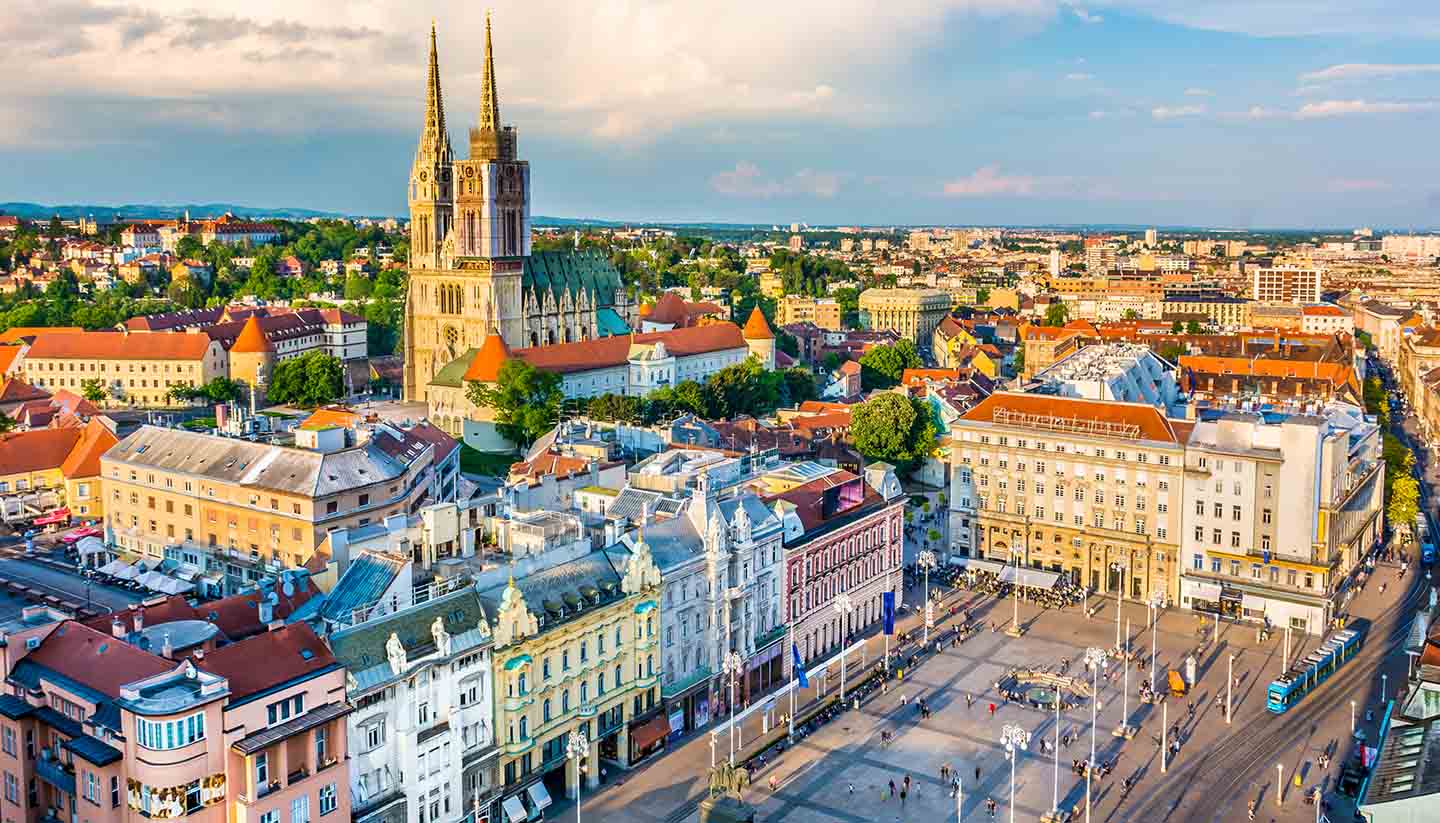Croatia Visa and Passport Requirements
| Passport required | Return ticket required | Visa Required | |
|---|---|---|---|
| USA | Yes | Yes | No |
| EU | See below | No | No |
| Canadian | Yes | Yes | No |
| Australian | Yes | Yes | No |
| British | Yes | Yes | No |
Passports
EU nationals: When travelling from one border-free Schengen country to another by car, you are not required to show a passport or national ID card. However, transport providers like airlines, train operators and ferry companies will require you to show your passport or ID card to prove your identity.
Non-EU nationals: To enter Croatia, you must have a valid passport issued within the past ten years and with at least three or six months left (depending on your nationality). You must also have a return ticket and sufficient funds for the length of stay.
Croatia is a Schengen country, but beware that EU members such as Cyprus and Ireland are not part of the Schengen area, so a passport or ID card is required if travelling to/from these countries.
Passport Note
From November 2024, the Entry/Exit System (EES) will register all non-EU/EEA/Swiss nationals at all border crossings of the Schengen Area.
Visas
EU nationals: You don't need a visa for Croatia. However, EU nationals who plan to live in Croatia for more than 90 days must register with the local authorities before the end of your first 90 days.
Non-EU nationals: The complete list of countries and territories whose nationals can visit Croatia and any other Schengen countries for up to 90 days in a 180-day period are as follows: Albania, Antigua and Barbuda, Argentina, Australia, Bahamas, Barbados, Bosnia and Herzegovina, Brazil, Brunei, Canada, Chile, Colombia, Costa Rica, Dominica, El Salvador, Georgia, Grenada, Guatemala, Honduras, Hong Kong, Israel, Japan, Kiribati, Kosovo, Macao, Malaysia, Marshal Islands, Mauritius, Mexico, Micronesia, Moldova, Montenegro, New Zealand, Nicaragua, North Macedonia, Palau, Panama, Paraguay, Peru, Saint Kitts and Nevis, Saint Lucia, Saint Vincent and the Grenadines, Samoa, Serbia, Seychelles, Singapore, Solomon Islands, South Korea, Timor-Leste, Tonga, Trinidad and Tobago, Tuvalu, Ukraine, United Arab Emirates, United Kingdom, United States of America, Uruguay, Vanuatu and Venezuela.
For nationals from countries not listed here, please contact the nearest embassy to check the visa requirements for Croatia.
Types and Cost
• €90 for those who are 12 years old and above
• €45 for children aged six to 11
• Free for children below six
In addition, the visa fee is waived for the following applicants:
• School pupils, students, postgraduate students and accompanying teachers who undertake stays for the purpose of study or educational training.
• Researchers from third countries travelling for the purpose of carrying out scientific research.
• Representatives of non-profit organisations aged 25 years or less participating in seminars, conferences, sports, cultural or educational events organised by non-profit organisations.
• Family members of EU/EEA (European Economic Area) citizens, falling under Directive 2004/38.
Transit
Citizens of some countries need an airport transit visa when transiting through international parts of any airports within the Schengen countries, whereas citizens of certain countries are only required a transit visa for some of the Schengen countries. If you are not from a Schengen visa exempt country, please check with a Croatian consulate near you.
Application to
Contact the embassy, high commission or consulate.
Schengen Visas
Croatia is a Schengen country, so the Schengen visa scheme applies.
Temporary residence
EU nationals and citizens of EEA (Norway, Iceland and Liechtenstein): You will need a residence permit for more than 90 days. However, please note that citizens of Romania and Bulgaria will require a work permit issued by the Employment Agency.
Non-EU nationals: You will need a visa to stay in Croatia for more than 90 days.
Working days
Schengen visa applications usually take 15 calendar days, but sometimes up to 45 days. Be mindful of the national holidays in Croatia as they may affect the processing time. It is recommended to submit applications at least four weeks prior to departure.
Sufficient Funds
Extension of stay
Schengen visa holders with a visa valid for less than 90 days can only extend their visas in exceptional circumstances, such as force majeure or for humanitarian reasons.
Entry with pets
When bringing a pet from another EU country, the animal must have a microchip or tattoo, an EU pet passport and a valid rabies vaccination certificate (the vaccination must have taken place at least 21 days prior to travel).
You are advised to check with the consulate for the appropriate procedures.
This page reflects our understanding of current rules for the most common types of travel to the said country. However, please note that each authority sets and forces entry rules, hence we strongly recommend that you verify critical information with the relevant embassy before travel.
Embassies and tourist offices
Embassy of the Republic of Croatia in the UK
Telephone: (020) 7387 1144.
Website: http://uk.mvp.hr
Address: , 21 Conway Street, London, W1T 6BN,
Opening times:
Mon-Thurs 1100-1400 (visa applications); Fri 1000-1200 (visa collections); Mon-Fri 1500-1600 (phone queries).
Embassy of the Republic of Croatia in the USA
Telephone: (202) 588 5899.
Website: http://www.croatiaemb.org
Address: NW, 2343 Massachusetts Avenue, Washington, DC, 20008,
Opening times:
Mon-Thurs 1000-1200 and 1400-1600, Fri 1000-1200 (consular section).
British Embassy in Zagreb
Telephone: (1) 600 9100.
Website: http://ukincroatia.fco.gov.uk
Address: , Ivana Lučića 4, 10000, Zagreb, ,
Opening times:
Mon-Thurs 0830-1700, Fri 0830-1400.


